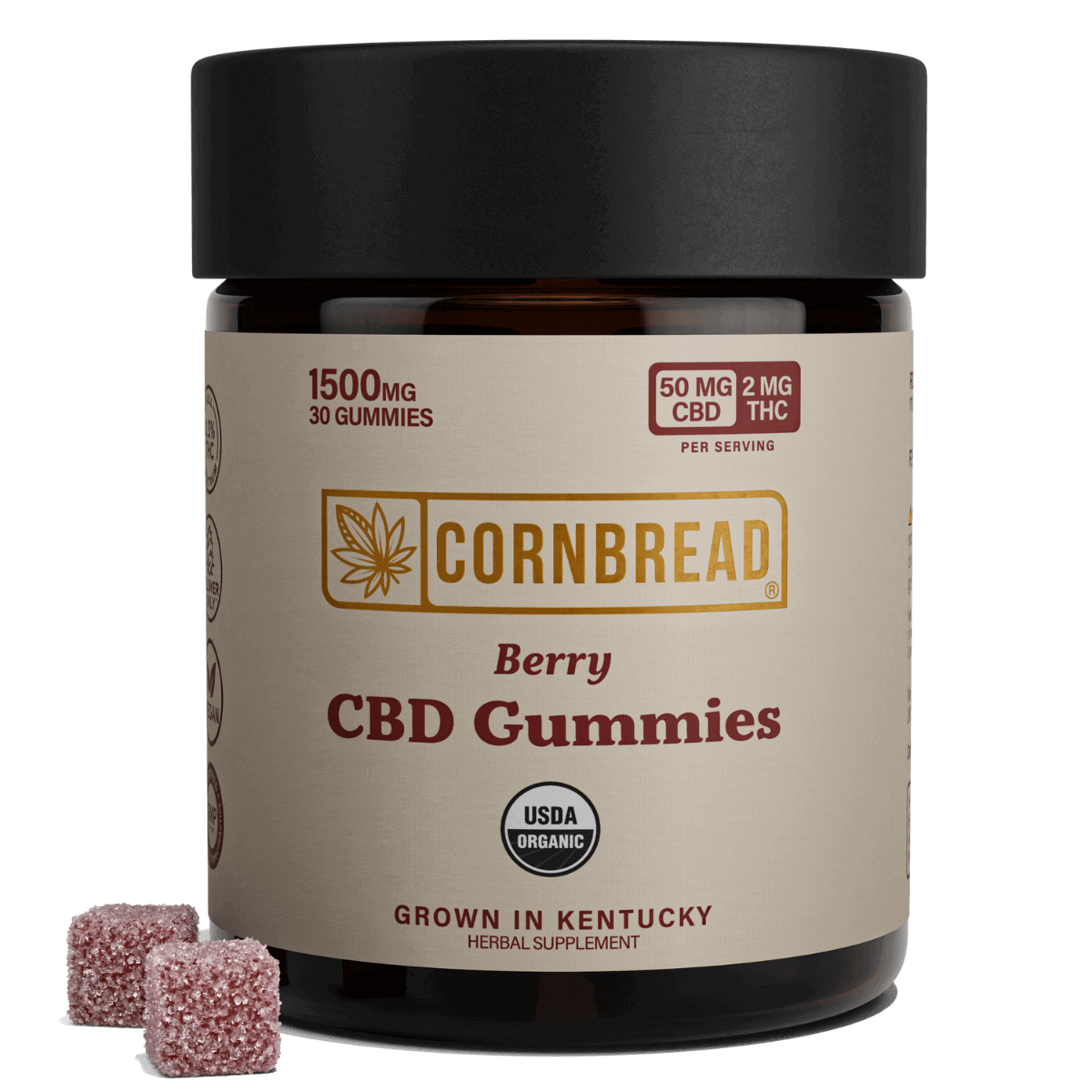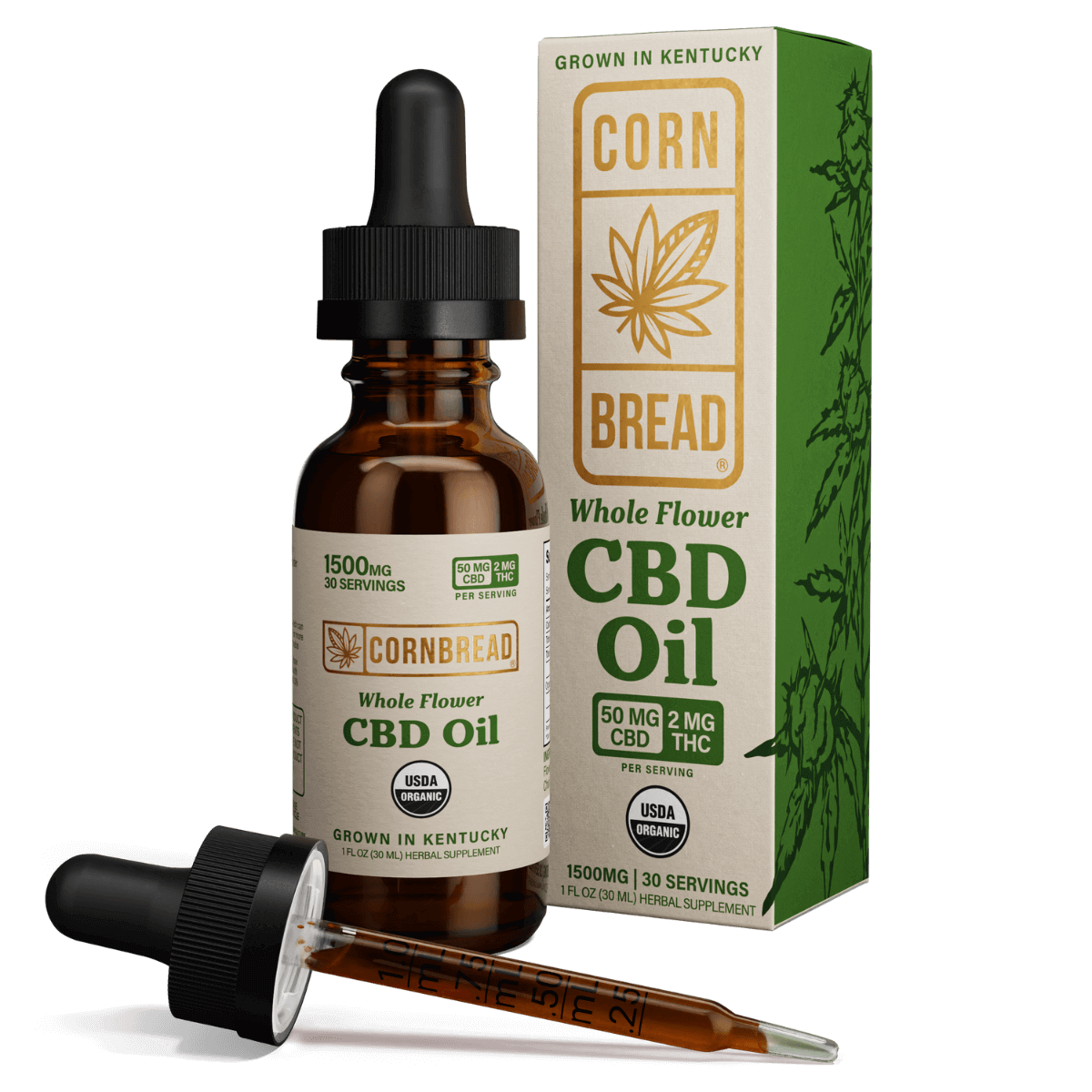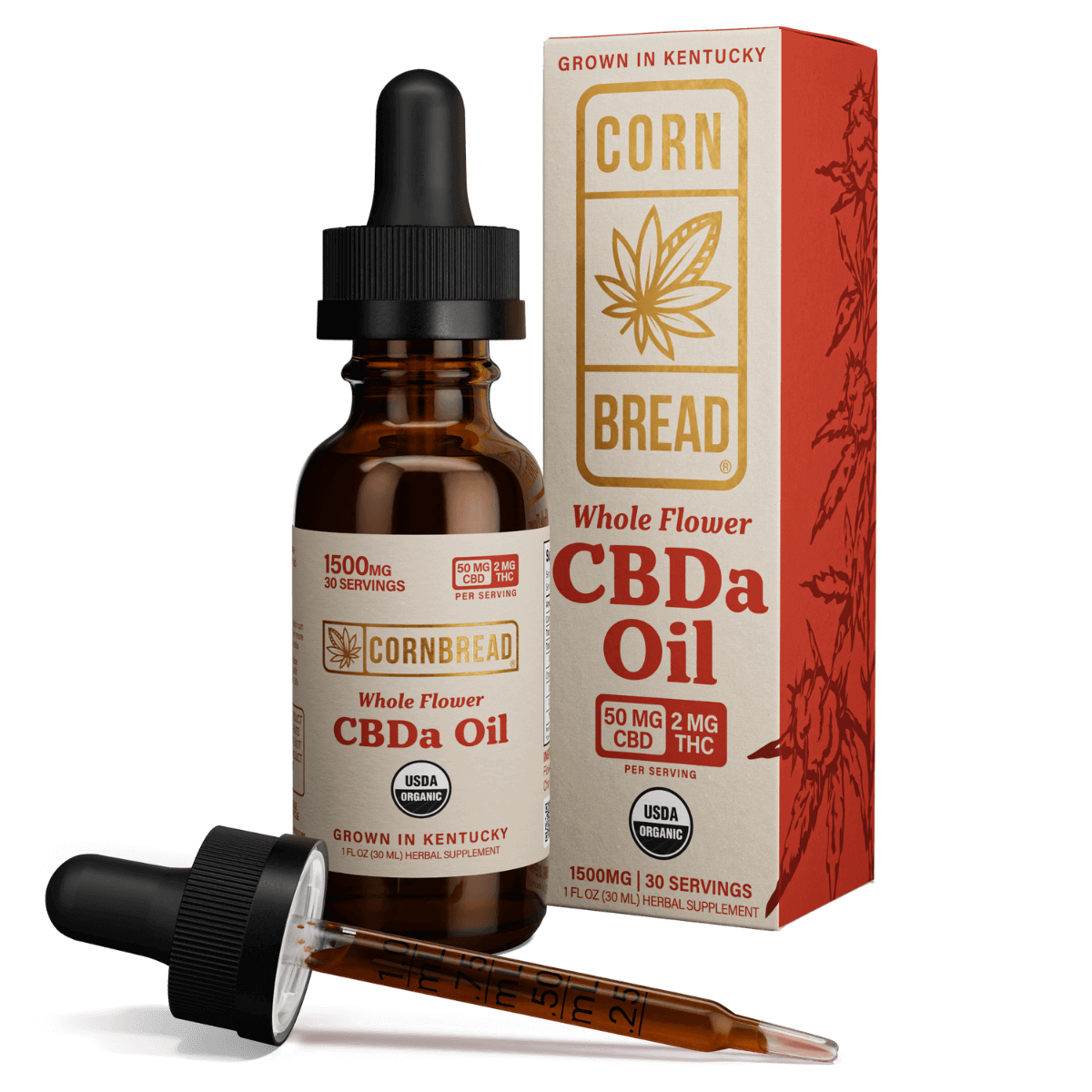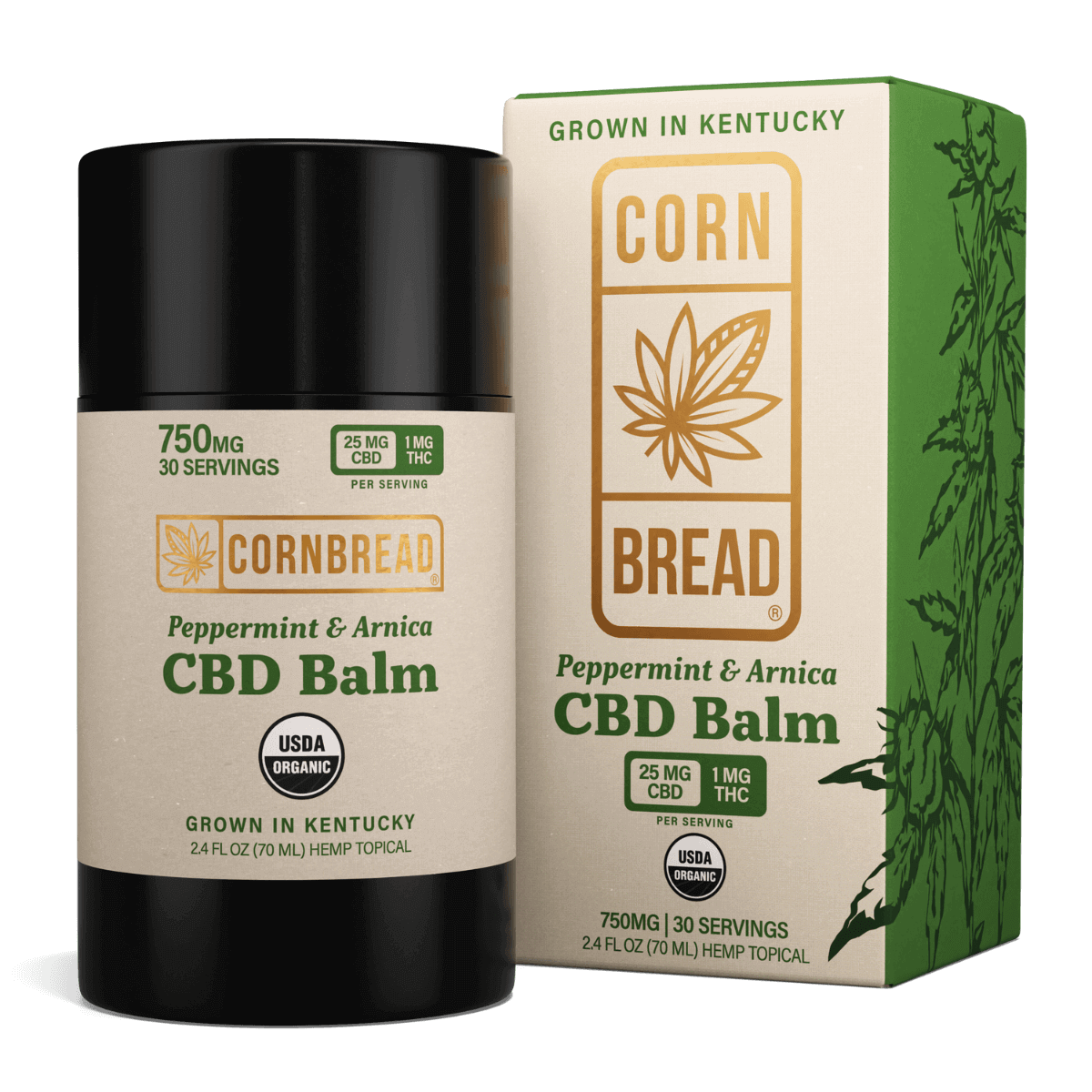Table of Contents
Introduction
If you’ve spent any time shopping for high quality CBD products, you may have stumbled across a bottle of tincture with “CBDa” written across the label. If you're wondering if CBD and CBDa are the same thing, or which is better, you've come to the right place! In this article, we’ll examine what CBDa is and how it compares to CBD. We’ll also explore the benefits of CBDa vs. CBD and answer your top questions about this interesting and relatively unknown cannabinoid.
What Is CBD?
CBD stands for cannabidiol. It’s one of over 150 cannabis compounds, or cannabinoids, present in both the hemp and marijuana subspecies of the cannabis sativa plant — though CBD is found in higher concentrations in hemp. CBD has been found to have potential therapeutic benefits, which is why it’s become such a popular wellness supplement along with other products like CBDa oil.
What Is CBDA?
CBDa stands for cannabidiolic acid.1 It is a cannabinoid found in marijuana and hemp plants. Unlike THC, when you consume CBDa or CBD, you won't experience a high feeling.
CBD is the more well-known of the two thanks to its many benefits, but that doesn’t mean CBDa’s benefits are less noteworthy, only that the spotlight has focused more on CBD. (We’ll get more into that a little later.)
When consumed, cannabinoids like CBD and CBDa have the potential to create a multitude of effects by interacting with the body's endocannabinoid system (ECS).
CBD, CBDa, and the Endocannabinoid System
The endocannabinoid system is a vast network of cannabinoid receptors, enzymes, and endocannabinoids (cannabinoids produced within the body). The purpose of the ECS is to maintain balance — or homeostasis — within the body. Just as the receptors and enzymes in the ECS interact naturally with endocannabinoids to regulate vital functions within the human body, so too do they interact with cannabinoids like THC, CBD, and CBDa.
CBDa and the ECS
Typically, a cannabinoid binds to cannabinoid receptors, triggering certain responses within the body’s various systems. CBDa acts a bit differently and may instead prevent the enzymes within the body's endocannabinoid system from breaking down other cannabinoids. This is one reason CBDa is considered such a beneficial supplement. It enables other therapeutic cannabinoids to have a greater effect on the body.
CBDa vs. CBD

If cannabidiol (CBD) and cannabidiolic acid (CBDa) sound related, that’s because they are.
CBDa is an acidic cannabis compound. It’s actually a precursor to CBD, meaning it converts (through exposure to heat, light, and oxygen) into CBD. There are other major cannabinoid precursor compounds.
-
THC is preceded by tetrahydrocannabinolic acid (THCa).
-
CBC (cannabichromene) comes from CBCa (cannabichromenic acid).
And all three of these acidic cannabinoids come from another — cannabigerolic acid, or CBGa. Known as “the mother of all cannabinoids,” CBGa precedes CBDa, THCa, and CBCa, which in turn precede all other cannabinoids.
How does this transformation from CBDa to CBD happen? Through a process called decarboxylation, which we’ll cover in the next section.
Cannabis Plant Decarboxylation (CBDa to CBD)
Decarboxylation is a complicated word describing the process that changes acidic cannabinoids, like CBDa and THCa, into CBD and THC.2 To put it simply, cannabinoid acids have what’s called a “carboxyl” group (imagine a little ring of carbon, oxygen, and hydrogen atoms). A carboxyl group is a common feature among organic acids in nature.
When the hemp plant is exposed to heat, it causes the carboxyl in CBDa to release and — voilà! The CBDa has been decarboxylated and is now CBD. Light and oxygen can also cause decarboxylation, though not as quickly.
Fresh, raw hemp flowers will contain mostly CBDa and not CBD. It isn’t until after decarboxylation that CBD becomes the most prominent cannabinoid.
CBDa vs. CBD Benefits
Since the cultivation of industrial hemp became federally legal in 2018, the availability of CBD has increased dramatically. As more and more people have experienced CBD's unique benefits, its popularity has skyrocketed. But what about the potential benefits of CBDa?
The Potential Benefits of CBDa
-
Relief from exercise-induced inflammation
-
Relief from everyday aches and pains
CBDa’s benefits are found to be more focused on the body and reducing exercise induced inflammation. CBDa has been found to have a similar chemical structure to inflammation relieving OTC products, which is one reason why scientists believe it could have anti-inflammatory properties.
CBDa has also been shown to potentially be more bioavailable than CBD3, resulting in higher concentrations of CBD in the bloodstream. As a result, CBDa may go to work more quickly and be more effective than CBD.
Are Both CBD and CBDA in CBD Oil?
Due to the methods that much of the CBD industry uses to process hemp into CBD oil (using some heat), there’s typically little to no CBDa remaining in most CBD products post-production. Still, some CBD oils may have more CBDa than others.
Types of CBD Oil
There are three main types of CBD oil: full spectrum, broad spectrum, and CBD isolate. Let’s examine each of these to determine which is most likely to contain CBDa.
Full Spectrum CBD Oil

Full spectrum CBD oil contains, as the name implies, the "full spectrum" of cannabinoids present in the hemp plant, including a small amount of THC (no more than 0.3%). This type of CBD oil is a favorite thanks to its ability to stimulate the "entourage effect" — a phenomenon where different cannabinoids taken together (particularly CBD and THC) produce a greater effect than either would on their own.
Depending on the extraction process used, full spectrum CBD oil will likely contain at least some CBDa.
Broad Spectrum CBD Oil
Broad spectrum CBD oil also contains a variety of cannabinoids, but it typically has little to no THC and may also be lacking in other cannabis compounds that the full spectrum CBD oil contains.
Broad spectrum CBD may also contain some CBDa, depending on the amount of heat that was used during the extraction process.
CBD Isolate (Pure CBD)
CBD isolate is a pure form of CBD that typically appears as a crystalized powder. It contains no other cannabis compounds and can be used to make CBD oil without any other cannabinoids.
CBD oils made with pure isolated CBD are less likely to contain CBDa.
Buying CBDa Oil and Other CBDa Products
CBDa converts easily to CBD if exposed to too much heat, so CBDa supplements require special treatment during production. Some CBD brands sell raw hemp oil to retain the CBDa concentrations, which may be the most effective method.
However, you don't have to restrict yourself to raw hemp extract or raw cannabis juice. Both CBDa and CBD come in a variety of forms. You can find CBDa tinctures, CBDa oils, and CBDa oil capsules, just as you can find CBD versions of these.
How to Find CBDa Oil That's High-Quality
The hemp industry is still fairly new in the U.S. and relatively unregulated. Before starting a new cannabinoid regimen, whether it includes CBD or CBDa, it's important to know how to find reliable, high-quality products.
In particular, you should be able to spot the key differences between reputable CBD companies and unscrupulous ones. Look for companies that offer the following when buying CBDa and CBD:
Third-Party Testing and Certificates of Analysis
Trustworthy CBD companies utilize third-party lab testing to verify the exact cannabinoid concentration in their products. They also practice transparency with their customers by making those lab results available online as certificates of analysis (COAs).
Organically Grown and Processed Hemp Plants
The hemp plant is a bioaccumulator, meaning it absorbs contaminants (like heavy metals, pesticides, and other toxins) from the soil faster than it can expel them. Thus hemp grown in contaminated soil will contain toxins. If contaminated hemp is processed to make cannabinoid oil, those toxins will end up in the oil and, eventually, in consumers' bodies.
Whether you're looking for CBD oil or CBDa in its raw form, it's important to ensure that whatever cannabinoid supplement you put in your body is of the highest quality.
High-Quality Cannabinoid Supplements at Cornbread Hemp
At Cornbread Hemp, we understand the importance of high-quality cannabinoids that you can count on. All Cornbread Hemp products are full spectrum, made only from the flower, and USDA certified organic through every step of the process. We utilize third-party lab testing and make the results available on our website so our customers know exactly what's in our cannabinoid products. Shop our full-spectrum CBD products now.










 Log in
Log in






















